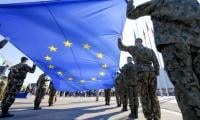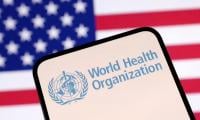Curious history of banning political parties in Pakistan
LAHORE: Since the country’s legislative houses are echoed with demands of proscribing Imran Khan-led Pakistan Tehreek-e-Insaaf (PTI) following the countrywide agitation, any such move against the party won’t be the first of its kind as the country’s chequered political history has been punctuated with such punitive actions.
Research conducted by the "Jang Group and Geo Television Network" reveals that the history of ban on Pakistani political organisations dates back to July 1954 when the Communist Party of Pakistan was barred to function on the charges of attempting to overthrow the government of then prime minister Liaquat Ali Khan in 1951.
This allegedly Soviet-backed unsuccessful plot, led by Major-General Akbar Khan, is also known as the Rawalpindi conspiracy case.
General Akbar, his wife, poet Faiz Ahmed Faiz, dozens of military officers and the Communist Party’s general secretary, Sajjad Zaheer were arrested, tried and put in jails.
Marxist revolutionary Sajjad Zaheer had founded the Communist Party in Calcutta in March 1948. Soon after the ban was imposed, a crackdown was also launched against the Communist Party leadership.
On March 26, 1971, the-then president, General Yahya Khan banned Sheikh Mujeebur Rehman’s Awami League.
In a broadcast to the nation, the President had stated: “Sheikh Mujibur Rahman’s action of non-cooperation movement is an act of treason. He and his party have defied the lawful authority for over three weeks. They have insulted Pakistan’s flag and defiled the photograph of the Father of the Nation. They have tried to run a parallel government. They have created turmoil, terror and insecurity. A number of murders had been committed in the name of the movement. The Armed Forces, located in East Pakistan, have been subjected to taunts and insults of all kinds.”
In May 2020, the Interior Ministry outlawed the Jeay Sindh Qaumi Mahaz-Arisar (JSQM-A), a party based in Sindh, along with two allegedly militant groups -- the Sindhudesh Liberation Army and the Sindhudesh Revolutionary Army -- citing "reasonable grounds" that the organizations had ties to terrorism.
The Jeay Sindh Qaumi Mahaz-Arisar was well known for criticizing China's Belt and Road Initiative.
On April 15, 2021, Tehreek-e-Labbaik Pakistan (TLP) was banned after violent protests that claimed lives of a few policemen.
The Punjab government had requested for the ban and the summary, after being approved from the Federal cabinet, had resulted in the prohibition under the Anti-Terrorism Act 1997.
TLP had filed a review petition on April 29, 2021 for the removal of the ban.
Despite the ban, the party was allowed to continue to take part in elections, as it was not delisted by the ECP.
TLP again held its protests in October 2021, following which the Government had agreed to lift the ban on the party on November 7 of the same year and released its detained Chief, Saad Rizvi, on November 18.
As far as the ban on proscribed armed anti-state groups, religious and ethnic parties and groups is concerned, the tally reached 76 by May 2020.
Between 2001 and 2015, more than 60 Pakistani organizations were banned for fanning religious extremism and sectarianism, and for their radical agendas and separatist designs.
The outfits proscribed between 2001 and 2015 include:
The Lashkar-e-Jhangvi; Sipah-e-Muhammad Pakistan; Jaish-e-Muhammad; Lakhar-e-Tayyeba; Sipah-e-Sahaba Pakistan; Tehreek-e-Jaafria Pakistan; Tehreek-e-Nifaz-e- Shariat-e-Mohammadi; Tehreek-e-Islami; Al-Qaeda; Millat-e-Islamia Pakistan (formerly Sipah-e-Sahaba Pakistan); Khuddam-ul-Islam; Islami Tehreek Pakistan (formerly Tehreek-e-Jaafria Pakistan); Jamiat-ul-Ansar; Jamiat-ul-Furqan; Hizb-ul-Tehrir; Khair-un-Nas International Trust; Balochistan Liberation Army (BLA); Islamic Students Movement of Pakistan; Lashkar-e-Islam; Ansar-ul-Islam--Haji Namdar Group; Tehreek-e- Taliban Pakistan; Balochistan Republican Army; Balochistan Liberation Front; Laskhar-e-Balochistan; the Balochistan Liberation United Front; Balochistan Musallah Defa Tanzeem; Shia Tulaba Action Committee, Gilgit; Markaz Sabeel Organisation, Gilgit; Tanzeem Naujawanan-e-Ahle Sunnat, Gilgit; People’s Aman Committee (Lyari), Karachi; Ahle Sunnat Wal Jamaat (formerly Sipah-e-Sahaba Pakistan); Al- Harmain Foundation; Rabita Trust; Anjuman-e- Imamia Gilgit Baltistan; Muslim Student’s Organization Gigit Baltistan; Balochistan Bunyad Parast Army; Tehreek Nafaz-e- Aman; Tahafuz-e-Hadudallah; Balochistan Waja Liberation Army; Baloch Republican Party; Azad Balochistan United Army; Islami Mujahideen; Jaish-e- Islam; the Balochistan National Liberation Army; Khana-e-Hikmat, Gilgit-Baltistan; Tehreek-e-Taliban, Swat; Tehreek-e-Taliban Mohmand, Tariq Geedar Group; Abdullah Azam Brigade; East Turkmenistan Islamic Movement; Islamic Movement of Uzbekistan; Islamic Jehad Union; Tehreek-e-Taliban Bajaur; Amar bil Maroof wa Nahi anil Munkir (Haji Namdar Group); Baloch Student Organisation Azad; United Baloch Army; Jeay Sindh Muttahida Mahaz; and Daesh.
-
 Nicola Peltz's Ex's Sister Reveals 'truth' About Actress Amid Brooklyn Beckham Drama
Nicola Peltz's Ex's Sister Reveals 'truth' About Actress Amid Brooklyn Beckham Drama -
 Davos: Elon Musk’s Surprise Addition To The Schedule Draws Global Attention
Davos: Elon Musk’s Surprise Addition To The Schedule Draws Global Attention -
 Why Kylie Jenner's Family Loves Timothée Chalamet
Why Kylie Jenner's Family Loves Timothée Chalamet -
 World's Oldest Artwork: 68,000 Year-old Cave Paintings Discovered In Indonesia
World's Oldest Artwork: 68,000 Year-old Cave Paintings Discovered In Indonesia -
 Brooklyn Beckham’s Family Feud Shows No Signs Of Healing Anytime Soon
Brooklyn Beckham’s Family Feud Shows No Signs Of Healing Anytime Soon -
 Spain Calls For EU Joint Army After Trump’s Declaration Of Greenland Deal
Spain Calls For EU Joint Army After Trump’s Declaration Of Greenland Deal -
 Elon Musk Pokes Fun At Anthropic, Calls It 'misanthropic'
Elon Musk Pokes Fun At Anthropic, Calls It 'misanthropic' -
 Gwyneth Paltrow Opens Up About Coping With ‘anxiety’
Gwyneth Paltrow Opens Up About Coping With ‘anxiety’ -
 New Study Links ‘binge-watching Addiction’ To Increased Social Isolation
New Study Links ‘binge-watching Addiction’ To Increased Social Isolation -
 Jason Statham Reflects On Intenses Physical Demands Of Work
Jason Statham Reflects On Intenses Physical Demands Of Work -
 Why Cancer Comes Back And How Scientists Believe It Can Be Stopped
Why Cancer Comes Back And How Scientists Believe It Can Be Stopped -
 US To Exit WHO: A Seismic Shift In Global Health?
US To Exit WHO: A Seismic Shift In Global Health? -
 Palace Staff Reveals Nothing Has Changed For ‘disgraced’ Andrew After Losing Titles
Palace Staff Reveals Nothing Has Changed For ‘disgraced’ Andrew After Losing Titles -
 How Did Taylor Swift Cope With ‘exhausting’ Sickness During Popular ‘Eras Tour’
How Did Taylor Swift Cope With ‘exhausting’ Sickness During Popular ‘Eras Tour’ -
 Artists Launch ‘Stealing Isn’t Innovation’ Campaign Against AI Use
Artists Launch ‘Stealing Isn’t Innovation’ Campaign Against AI Use -
 Elon Musk’s XAI Grok Imagine Now Generates 10-second Videos With Sharper Quality: Here’s How
Elon Musk’s XAI Grok Imagine Now Generates 10-second Videos With Sharper Quality: Here’s How



